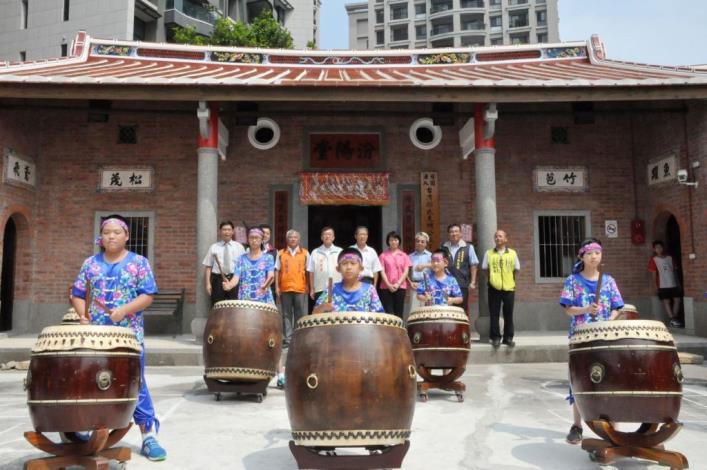 After two years of restoration work, a completion ceremony was held to mark the completion of restoration work on Hsinchu County’s historic building “Quanzhou House Fenyang Hall” on September 20. In the future, the main part of the Hall will continue to be used to worship Guo clan’s ancestors. Displaying the history of the clan’s migration to Zhubei, the hardships the settlers faced, and how life was for farming families in earlier times. The left and right wings will be managed by publicly announced managing team and be used as a performance space and as family reading and education space for the community.
After two years of restoration work, a completion ceremony was held to mark the completion of restoration work on Hsinchu County’s historic building “Quanzhou House Fenyang Hall” on September 20. In the future, the main part of the Hall will continue to be used to worship Guo clan’s ancestors. Displaying the history of the clan’s migration to Zhubei, the hardships the settlers faced, and how life was for farming families in earlier times. The left and right wings will be managed by publicly announced managing team and be used as a performance space and as family reading and education space for the community.
Fenyang Hall is within the scope of the National Taiwan University of Science and Technology Urban Plan compulsory purchase and development area. As the courtyard building was completely preserved, it was preserved as park use land in 2004 and was listed as a historic building in 2007. The Guo clan established a clan association and continued to worship their ancestors and maintain the Hall; and, to preserve it, the Clan raised NT$3.2 million voluntarily; NT$11.52 million in funding was also generously provided by the Hakka Affairs Council and NT$2.24 million from the county government. In total the restoration budget was 16million.
The completion of restoration work makes Fenyang Hall Zhubei’s second restored historic building. President of the Taiwan Guo Clan Association Guo Deng-cheng said at the work-completion ceremony that they will, to the best of their ability, cooperate with opening of the hall by the Bureau of Culture to visitors, providing the local area with an additional arts space.
Magistrate Chiu said that after the Liujia district carried out an urban plan the old Dongxing Irrigation Channel was preserved; along the Channel there are eight historic buildings, more than a dozen Bogong temples, many old trees and remains of irrigation ditches. With Fenyang Hall as the start the county government will link Xinglong, Dongxing and Liujia elementary schools, Chenggong and Dongxing junior high schools and the College of Hakka Studies of National Chiao Tung University, combining cultural heritage and environmental education, to create the Liujia Irrigation Channel Learning Park, with activized historic space increasing interaction and understanding between old and new residents.